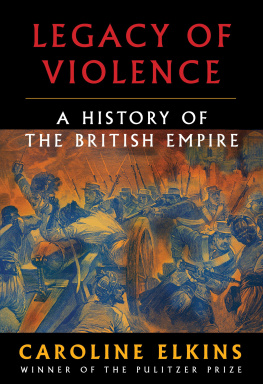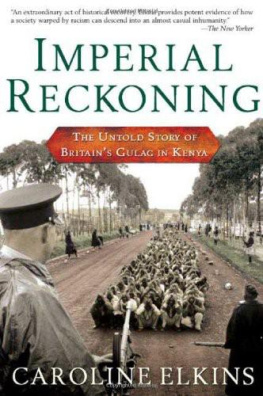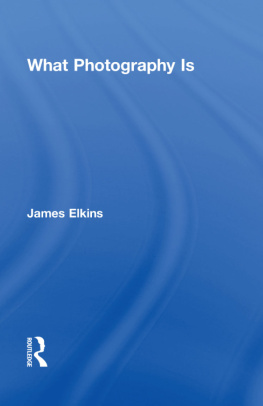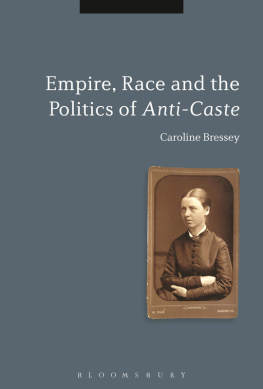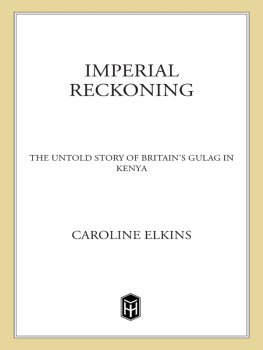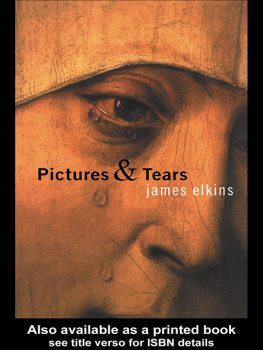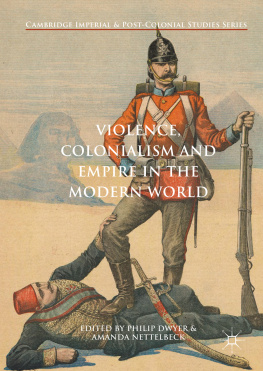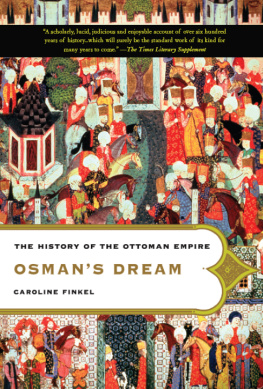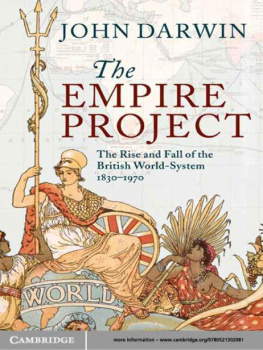Caroline Elkins - Legacy of Violence : A History of the British Empire
Here you can read online Caroline Elkins - Legacy of Violence : A History of the British Empire full text of the book (entire story) in english for free. Download pdf and epub, get meaning, cover and reviews about this ebook. year: 2022, publisher: Knopf Doubleday Publishing Group, genre: Politics. Description of the work, (preface) as well as reviews are available. Best literature library LitArk.com created for fans of good reading and offers a wide selection of genres:
Romance novel
Science fiction
Adventure
Detective
Science
History
Home and family
Prose
Art
Politics
Computer
Non-fiction
Religion
Business
Children
Humor
Choose a favorite category and find really read worthwhile books. Enjoy immersion in the world of imagination, feel the emotions of the characters or learn something new for yourself, make an fascinating discovery.
- Book:Legacy of Violence : A History of the British Empire
- Author:
- Publisher:Knopf Doubleday Publishing Group
- Genre:
- Year:2022
- Rating:3 / 5
- Favourites:Add to favourites
- Your mark:
- 60
- 1
- 2
- 3
- 4
- 5
Legacy of Violence : A History of the British Empire: summary, description and annotation
We offer to read an annotation, description, summary or preface (depends on what the author of the book "Legacy of Violence : A History of the British Empire" wrote himself). If you haven't found the necessary information about the book — write in the comments, we will try to find it.
Legacy of Violence : A History of the British Empire — read online for free the complete book (whole text) full work
Below is the text of the book, divided by pages. System saving the place of the last page read, allows you to conveniently read the book "Legacy of Violence : A History of the British Empire" online for free, without having to search again every time where you left off. Put a bookmark, and you can go to the page where you finished reading at any time.
Font size:
Interval:
Bookmark:
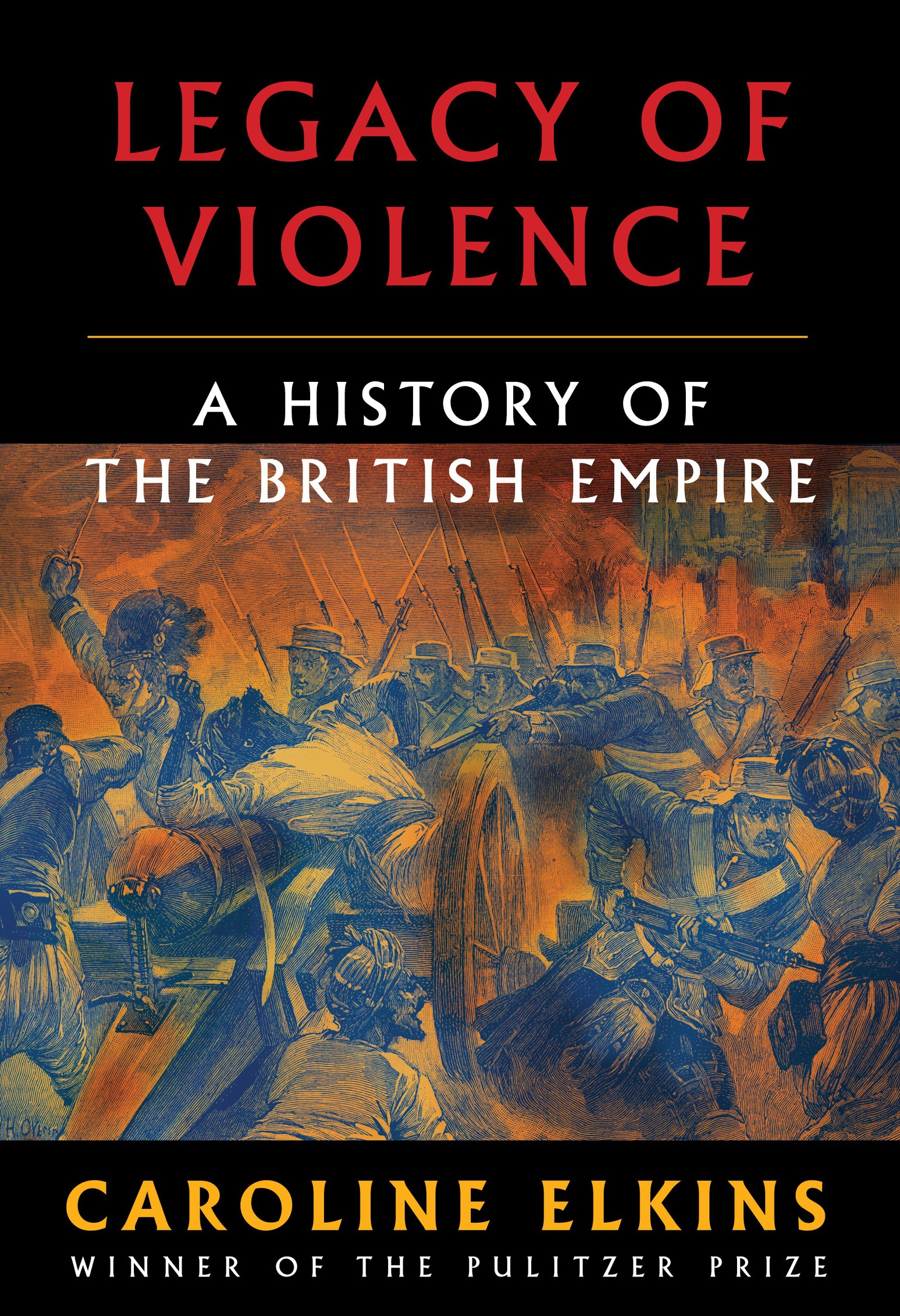
Imperial Reckoning:
The Untold Story of Britains Gulag in Kenya
Settler Colonialism in the Twentieth Century:
Projects, Practices, Legacies
Time for Reparations: A Global Perspective
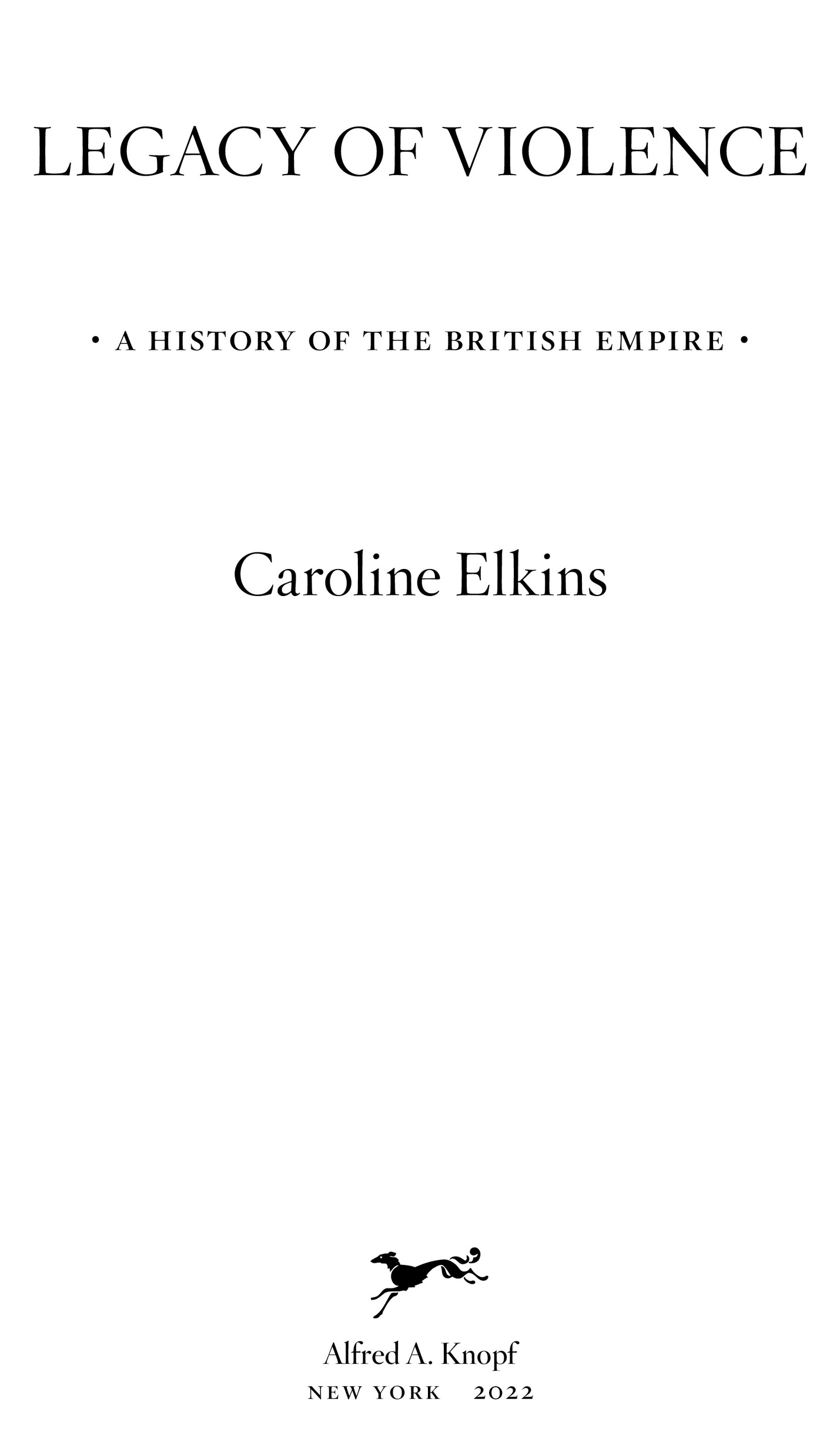
THIS IS A BORZOI BOOK
PUBLISHED BY ALFRED A. KNOPF
Copyright 2022 by Caroline Elkins
All rights reserved. Published in the United States by Alfred A. Knopf, a division of Penguin Random House LLC, New York, and distributed in Canada by Penguin Random House Canada Limited, Toronto.
www.aaknopf.com
Knopf, Borzoi Books, and the colophon are registered trademarks of Penguin Random House LLC.
Grateful acknowledgment is made to the following for permission to reprint previously published materials:
HarperCollins Publishers LLC: Excerpts from Nineteen Eighty-Four by George Orwell, copyright 1949 by HarperCollins Publishers LLC, copyright renewed 1977 by Sonia Brownell Orwell. Reprinted by permission of Mariner Books, an imprint of HarperCollins Publishers LLC. All rights reserved.
The Times / News Licensing: Excerpt from Malayan Emergency, IIDiscontents in a Plural Society, Issue 52388 (August 12, 1952). Reprinted by permission of The Times / News Licensing.
Library of Congress Cataloging-in-Publication Data
Names: Elkins, Caroline, author.
Title: Legacy of violence : a history of the British empire / Caroline Elkins.
Description: First edition. | New York : Alfred A. Knopf, 2022. | This is a Borzoi Book published by Alfred A. Knopf. | Includes bibliographical references and index.
Identifiers: LCCN 2021018550 (print) | LCCN 2021018551 (ebook) | ISBN 9780307272423 (hardcover) | ISBN 9780593320082 (ebook)
Subjects: LCSH : State-sponsored terrorismGreat BritainHistory20th century. | PunishmentGreat BritainHistory20th century. | LiberalismGreat BritainHistory20th century. | Imperialism. | Great BritainColoniesAdministrationHistory20th century. | Great BritainColoniesSocial conditions. | Great BritainPolitics and government20th century.
Classification: LCC JV 1062 . E 55 2022 (print) | LCC JV 1062 (ebook) | DDC 909/.0971241082dc23
LC record available at https://lccn.loc.gov/2021018550
LC ebook record available at https://lccn.loc.gov/2021018551
Ebook ISBN9780593320082
Cover image: Highlanders during the Indian Mutiny of 1857. Lebrecht Music & Arts / Alamy
Cover design by Chip Kidd
ep_prh_6.0_139653424_c0_r0
For Jake, Andy, and Ingrid
I learned to recognise the thorough and primitive duality of man; I saw that, of the two natures that contended in the field of my consciousness, even if I could rightly be said to be either, it was only because I was radically both.
Robert Louis Stevenson,
The Strange Case of Dr. Jekyll and Mr. Hyde
This book contains derogatory words and phrases, quoted from historical actors, that refer to racial, ethnic, and religious groups. They are offensive. I have chosen to use these words and phrases, in their original forms, because this language represents the attitudes of some historical actors during this period and encodes much of the state-directed violence that I discuss and analyze.
Demanding yet denying the human condition makes for an explosive contradiction.
Jean-Paul Sartre
Preface to The Wretched of the Earth, 1961
On the overcast afternoon of June 7, 2020, thousands of protesters flooded Londons streets where their presence threw into relief an emptiness that the global pandemic had brought to Britains capital. The void of pedestrian and traffic hum amplified the demonstrators voices as they reverberated through the citys edifices dedicated to the empire. Indeed, it was the empire and its conflicted past that fueled the crowds demands. They marched to Westminster, where an oversize statue of Winston Churchill beckoned Parliament to take care of the liberal order that he had so valiantly championed and protected during the high noon of Britains empire. In death as in life, Churchill was a figure of outsize proportions, and his often-repeated quotes have stood the test of time. Never give in, never give in, never, never, never, he famously intoned in 1941 to a cadre of impressionable young men at his exclusive alma mater, Harrow School.
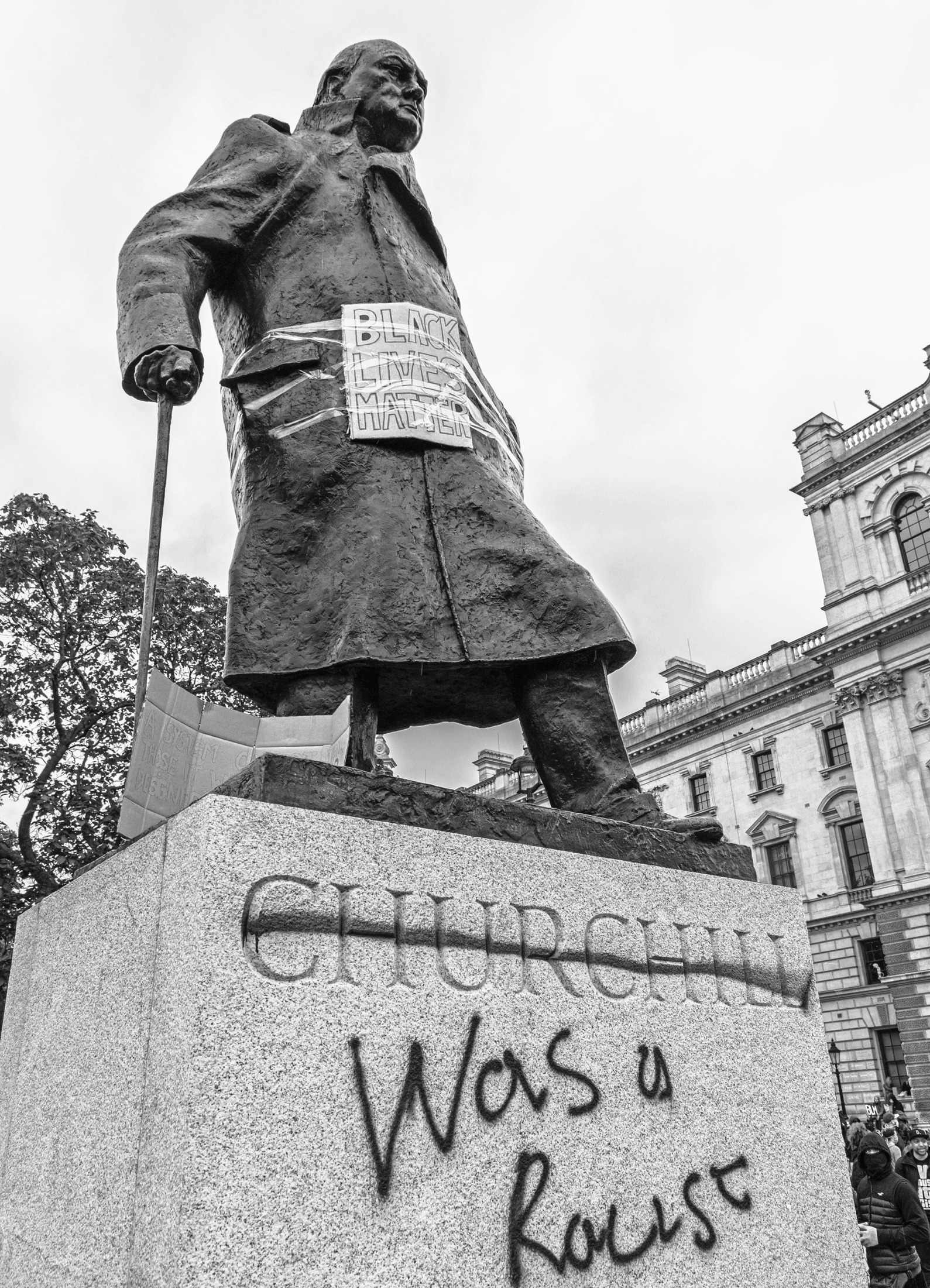
Statue of Winston Churchill, Parliament Square, London, June 7, 2020
Demands for racial justice swept through Britain at a time when COVID-19 struck its Black population with the same disproportion already evident in prison populations and police violence. Churchill was not the only historic figure now held to account. Around the time his statue was defaced, another physical testament to empire also went the way of history. In Bristol, a city built on profits gained from the trade and labor of enslaved people, Black Lives Matter demonstrations ignited from backdrafts across the Atlantic. Edward Colstons statue became the target of protesters fury, and its not difficult to understand why. Colston was director of the Royal African Company when it forcibly transported around eighty-five thousand African men, women, and children, in conditions so inhumane that nearly a quarter of them perished before they reached the Americas. For over a century, his statue was a monument, for some, to the extraordinary beneficence that Colston bestowed on the city. For others, it represented a nation that still boasted an imperial pride built not only on shameless racial assumptions but also on the backs of countless enslaved and colonized peoples across Britains empirean empire that, in its heyday, covered over a quarter of the worlds landmass and claimed 700 million people as its subjects. The protesters rendered their judgment when they toppled Colstons statue and launched it into the River Avon.
The silence of Colstons final resting place stood in stark contrast to the debates over the past that haunted and divided the nation. In the eyes of many, Britain had been the purveyor of a benign imperialism that was the standard-bearer for all other empires. For certain, there were blots, like the trade in enslaved peoples, but on historys balance sheet, any ill-begotten wealth had been more than atoned for through Britains largesse. When empires aperture widened to the postemancipation nineteenth and twentieth centuries, the narrative persisted and produced imperial icons like Cecil John Rhodes. Founder of the British South African Company, Rhodes enacted a grandiose Cape to Cairo vision with an oppressive hand of economic extraction. He was, according to Oxfords Oriel College, a businessman and a political deal-maker who prosecuted wars in pursuit of his goals. Upon his death in 1902, he bequeathed 100,000 to Oriel College, though the bulk of his money went to the Rhodes Trust and its scholarships for students from the British colonies, the United States, and Germany. For more than a century, Rhodess statue has gazed at Oxford studentsa select few of whom hold the mineral magnates prestigious fellowshipas they walk past Oriels north side. This, despite vehement calls for its removal.
Font size:
Interval:
Bookmark:
Similar books «Legacy of Violence : A History of the British Empire»
Look at similar books to Legacy of Violence : A History of the British Empire. We have selected literature similar in name and meaning in the hope of providing readers with more options to find new, interesting, not yet read works.
Discussion, reviews of the book Legacy of Violence : A History of the British Empire and just readers' own opinions. Leave your comments, write what you think about the work, its meaning or the main characters. Specify what exactly you liked and what you didn't like, and why you think so.

